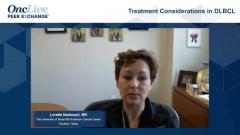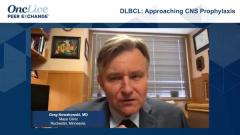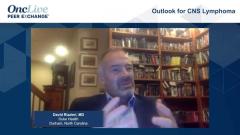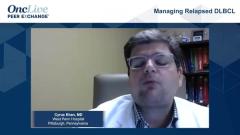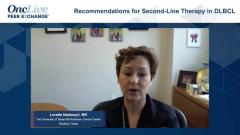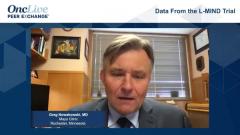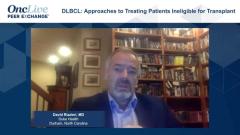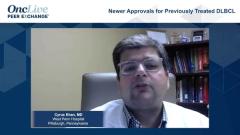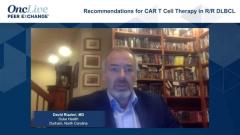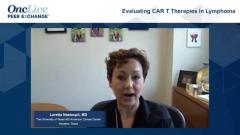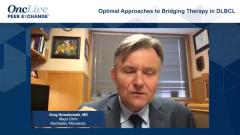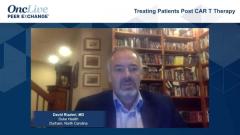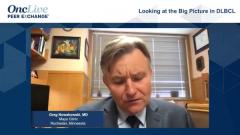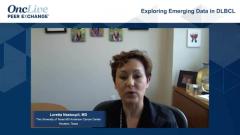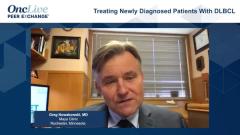
Treating Patients Post CAR T Therapy
David Rizzieri, MD, discusses treatment approaches for after relapse on CAR T cell therapy or for patients who are ineligible for CAR T therapy.
Episodes in this series

John Leonard, MD: David, I want to get into the concept of the post-CAR T patient and that didn't even exist obviously before. We had a plenary session at ASCO, I guess a year and a half ago, more or less, in 2019 if I have that right. Where there were data with mosunetuzumab by specific antibody having some activity after CAR T cell therapy. What is you're general approach to patients after CAR T? We'll come back to investigational agents because I know that there's some interesting things there. But Putting that aside a second, are there particular data or approaches that you have or if they're investigational drugs that you're excited about in this setting? I know a lot of people- the proverbial, let's wake up the CAR T cells with some sort of immuno-stimulant checkpoint inhibitor or something. I've not been convinced that those have done anything in a progressing patient, although it seems like there's some anecdotes out there. But what is your strategy in a post-CAR T patient? Also who do you give them again? I know there have been some responses to a second administration.
David Rizzieri, MD: Yes, and this is more stylistic than data driven as you were mentioning right? I think repeat CAR T therapy on a patient who progresses within the year or so, I think is difficult to justify from a data as well as fiscal responsibility standpoint. We have these other options as we've discussed, I think it's a good time to look at a different target. So again, polatuzumab as was mentioned if not used before, if hadn't already failed the patient, then I think this is a good time to consider that. Pulling out the imides at this point, so a tafasitamab with lenalidomide is certainly an appropriate option and often a little better tolerated than some of the other aggressive approaches one might think of. I like the facts, Cyrus brought up the point of how broad the loncastuximab study was including lots of patients with very difficult biology to treat et cetera. While that data may not have been a barn burner as a targeted individual therapy, it does include patients who are really tough to treat, as these patients would be, and I think that's very reasonable. As is a nice oral agent such as selinexor where we have of course more experience in the myelo population than lymphoma with that agent. But any of those are reasonable and we basically would cycle through them if we don't have a clinical trial. I do think that the cellular therapy clinical trials are the next thing beyond CAR T and some of these targeted therapies, for instance, there's a great push on multiple varieties of natural killer cell studies that are off the shelf or third party. There are some very interesting ones in the lymphoma space that I think may have a role here and they're just about at their recommended Phase 2 dosing. I think we may have more cellular therapies, separate from CAR T, to offer such patients in the near future on study.
John Leonard, MD: Cyrus, anything particular you tend to go to right after CAR T in these patients that you've had success with?
Cyrus Khan, MD: Yes, typically I go to Pola, particularly if they haven't received it. I have had good results with those patients. Or clinical trials. Those are my two approaches. But now of course with loncastuximab approved, there's that option also available to us.
TRANSCRIPT EDITED FOR CLARITY


